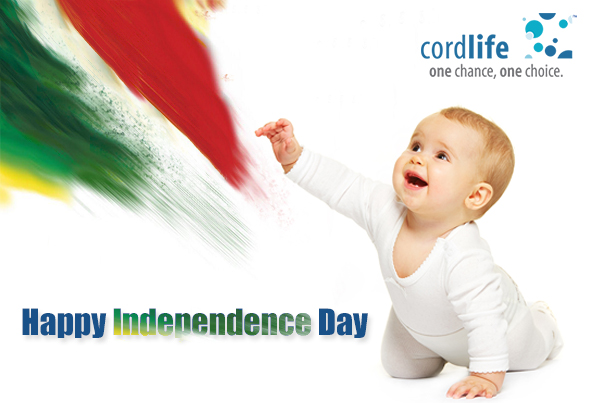Table of Contents
As India completes 68 years of independence, we take a look at the current state of Indian stem cell banking.
India soon completes 68 years of independence, and the country has made notable strides in several fields. Prominent among these is the field of medicine and medical research. Indian medical expertise is considered to be among the best in the world, and the country is an important destination for medical tourism.
In the last five years, the awareness of such medical processes as stem cell banking has also risen. Hitherto an unknown option, stem cell banking is today slowly growing in both awareness and reach, with doctors playing a major role in getting expectant parents on board. When gynaecologists and obstetricians inform parents about the benefits of cord blood banking and how it is a safe way to safeguard their child’s future health, parents are generally likely to consider the option.
However, the awareness about stem cell banking and its vast plethora of benefits is still quite small.
The rising cases of thalassemia and several cancers, especially, are good reasons to invest in one’s child’s future wellbeing. This is unfortunate, especially given the rise in diseases such as multiple sclerosis, multiple myeloma, sickle cell anaemia and leukaemia in India, and which can be treated with stem cells. Currently, stem cells can treat as many as 80 serious diseases. “The clinical trials carried out by Dukes University and Sutter Institute for autologous stem cells derived from cord blood cells seem to suggest a treatment for autism. In India, 1 out of every 250 babies is diagnosed with autism. It is difficult to negate the concept of stem cell banking if such is the possibility [of treatment],” says noted obstetrician Dr Kiran Coelho[1].
Another area of work that India needs to consider is that of public cord blood banking. Since the concept of stem cell banking is taking root in the country only in the last few years, earlier parents did not have the opportunity to store their child’s cord blood. Public cord blood banking is a good source of finding matching stem cells for children and adults looking for stem cell transplantation.
As India gears up for its 68th year of independence, it is time to lay greater emphasis on the benefits of stem cell banking and how it can be used to rid the country of several serious diseases.
[1] Dr Kiran Coelho, https://www.cordlife.com/news/pdf_cordlifeNews/india/12August2015.pdf
